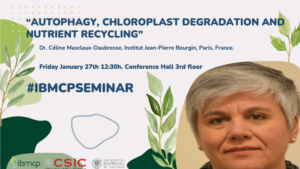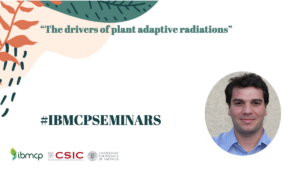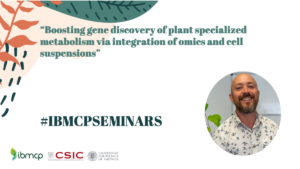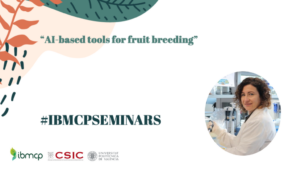“Autophagy, chloroplast degradation and nutrient recycling “
Macroautophagy is induced during leaf senescence and in response to environmental stresses. Dedicated to cell clearance and organelle quality control, macroautophagy sequesters unwanted cytoplasmic material into vesicles named autophagosomes and drives them to lytic vacuoles. Facilitating cytoplasm clearance, it also facilitates macromolecule recycling and provides back small molecules as sugars, lipids and amino acids, that can be reused in the cell itself, or exported after phloem loading to the sink growing organs. As such, macroautophagy controls up to 60% of the nitrogen, sulfur and iron fluxes from senescing leaves to the seeds in Arabidopsis. Chloroplasts that contain high amount of nitrogen and produce many deleterious reactive oxygen species under stress and during senescence, have been proposed to be targeted by autophagy during senescence. Specific autophagy of cytoplasmic material involves targeting of autophagic substrates (cargoes) by the ATG8 protein at the surface af autophagosome membrane, through protein-protein interaction. Organelles as peroxysome, mitochondria and chloroplast recognition should involve ATG8-interacting proteins that are associated to organelles membranes and could act as receptors. ATG8-receptor interaction could drive organelles or organelle portions inside the autophagosome. Using comparative proteomic we identified potential autophagy cargo and receptor candidates that could play a role in chloroplast degradation.
If anyone is interested in meeting with Dr. Masclaux-Daubresse, please contact Alejandro Ferrando (ferrando@ibmcp.upv.es)






